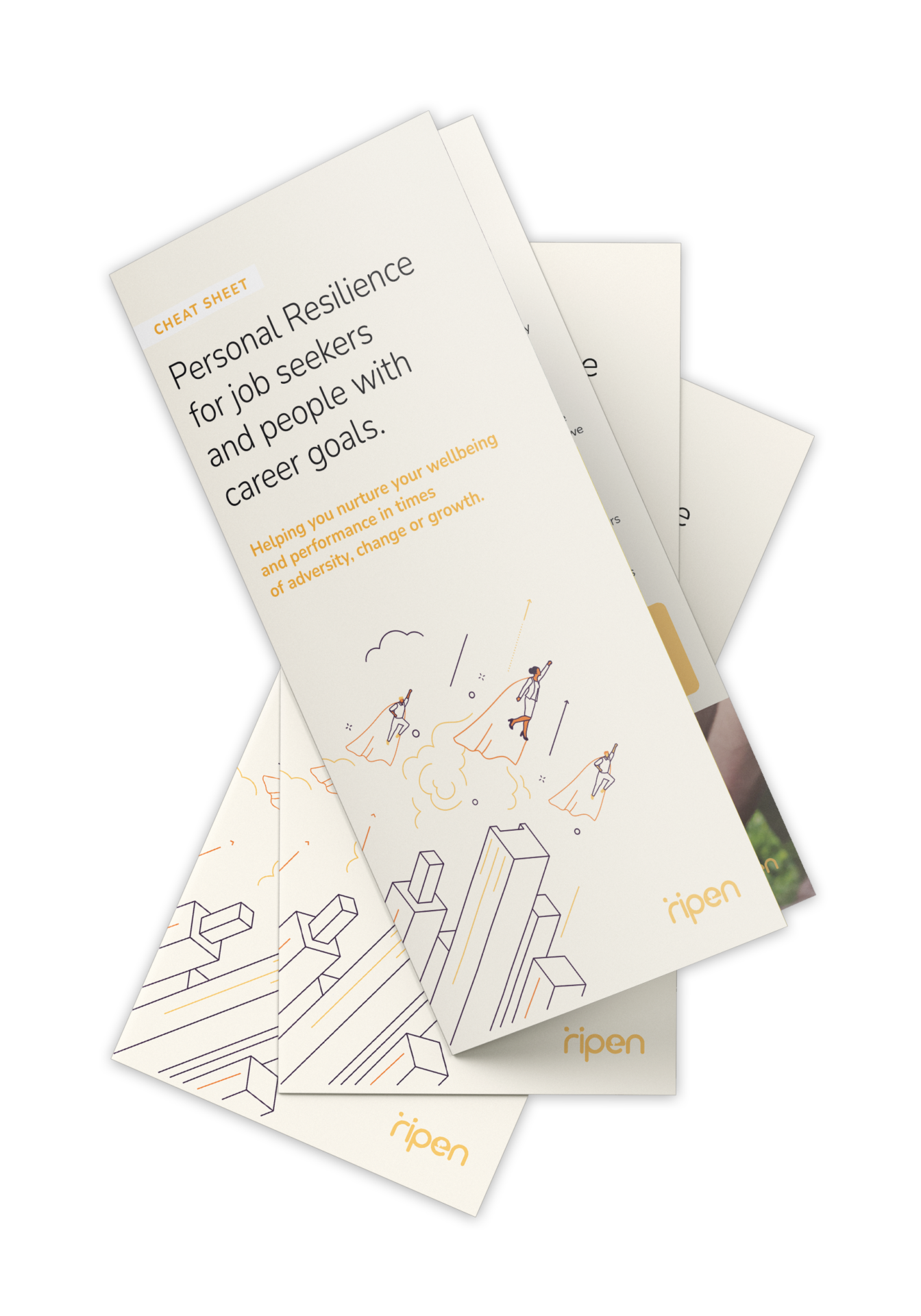
Building Resilience for Customer Service Teams
Here’s why Personal Resilience is especially important for Customer Service teams, and what organisations can do to equip their Customer facing employees for optimal wellbeing!
Customer service teams are often the unsung heroes of many organisations. These agents and team leaders are the frontline of defence for an organisations brand and reputation. They are in the trenches taking on the brunt of each customer’s anxiety, frustration and worry when resolving their product or service issues. Anybody’s Resilience would be tested dealing with just one or two abusive, angry or stressed customers each day, but for many customer care agents and teams the onslaught of customer demands and stress reaches double figures on a daily basis! Here’s why Personal Resilience is especially important for Customer Service teams, and what organisations can do to equip their customer facing employees for optimal wellbeing…
Customer Service… any organisations Frontline of Defence!
Often the unsung heroes of many organisations, Customer Service teams are the frontline of defence for upholding an organisations brand and reputation – especially during and after a Pandemic!
Since “business” became a thing in our civilization, when it was little more than bartering for goods or services, it has been essential to treat people who trade with us fairly and honestly. Reputation is everything to a business. If a customer has a legitimate problem with something they purchased, it’s the seller’s obligation to make things right. Failure to do this may well lose that customer relationship forever. This has held true across all cultures for thousands of years. No matter what its been called in the past, or the many variations of what it’s called today, this essential role in business is best known as Customer Service.
Customer demands and expectations have been increasing year on year since the rise of the internet. We live in a world of ubiquitous technology, where everything is instant. People place an order or enquiry online for a product or service and expect it to be actioned and delivered, yesterday! Pandemic’s like Covid-19 causing supply chain issues, stock shortages, or service delays are considered poor excuses by today’s standards of business. As customers, when there’s a problem or delay with our order, we don’t want to deal with an AI chat bot or an FAQs website page! We want to speak to a real human being who hears our concerns, takes on our stress and worry, and uses this to take immediate action! Enter the role of Customer Service teams and call centres…
How Resilient is your Customer Service team or call centre?
For any team there’s many common threats to wellbeing and performance at work each day; large workloads, tight deadlines, ambitious targets or performance measures, and rapid organisational change to name just a few! But for Customer Service teams there are 3 significant challenges that require immense Resilience on a daily and situational basis…
1. Taking on a customer’s negative emotions!
Taking on a customer’s emotions, such as anxiety, frustration and worry, is part of the job description for a Customer Service agent and team. They acknowledge a customer’s concerns, empathise, and then take time to find a solution the customer is happy with. Performance is measured in terms of customer satisfaction scores, and a customer who reports a low score is like running backwards on a treadmill — it doesn’t end well for anyone!
Taking on other people’s negative emotions directly impacts on our own emotions, and therefore our wellbeing and outcomes. It’s not uncommon to carry negative emotions around with us e.g. from work into the home environment, or vice-versa. If our Resilience and wellbeing is being lowered by our work, then we may be seeing the impacts of this in all facets of our daily work and lives.
2. Having our stress response constantly triggered by others stress!
Our stress response can be triggered by the stress response of those we interact with. We are energetic, emotional beings and we pick up and take on what’s going on in our environment/s. Babies for example literally thrive off the energy they get from others, so it’s not surprising their stress response is triggered in noisy or dangerous places even though they cognitively have no understanding about what their environment means!
We don’t lose this unconscious connection to the environment and others’ energy as adults, we just don’t acknowledge it or consciously manage it. So dealing with customers who are stressed can result in customer service teams who are constantly stressed! This becomes a significant issue for team wellbeing and performance as persistent stress leads to cognitive impairment and fatigue, meaning problem solving and wellbeing is reduced. While persistent fatigue leads to burnout, meaning staff absenteeism, presenteeism and poor staff retention is increased!
3. Taking on others’ problems as our own!
Most people who work in Customer care roles genuinely care about others. They enjoy making customers happy and resolving issues for customers is rewarding for them. For many, this involves going over and above in solving problems and often taking on others’ problems as their own. This may involve burdening themselves with unsolved problems even after their work day has ended.
An unhappy customer could mean a poor customer service rating, and this measure is how customer service agents and teams are performance managed and keep their job. Carrying work-related burdens around with us means not being able to switch off from work, impairing ability to be present, focused and Resilient in our lives inside and outside of work.
Resilience training for Customer Service teams
Without proper self-management, our own pattern of thinking, feeling and responding becomes aligned with the people we interact with. Dealing with negativity all day in the shape of disgruntled customers, having their stress response constantly triggered by the exchange of stress from customers, and then taking on other people’s problems as their own, all carries a weight that impacts the immediate and long term wellbeing and performance of Customer Service teams.
Personal Resilience is a set of abilities that enable someone to consciously respond to threats faced at work in a way that protects and cultivates optimal wellbeing and performance. Resilience is not simply born, it’s a learned pattern of behaviours that determine how a person thinks, feels and responds to life’s challenges and threats, such as those explored here. For Customer Service teams, these behaviours include knowing how to:
- Monitor and regulate themselves for not taking on other people’s negative emotions, or carrying negative emotions from one situation to another.
- Apply optimal habits for maintaining physical, mental and emotional vitality, in work and day-to-day life.
- Adopt cognitive flexibility for controlling perspective and responses to challenges or threats faced.
Tailored Resilience Training for Customer Service teams!
At Ripen we know Customer Service teams can’t take time out of their workday for lengthy training workshops, and with our 7 Day Digital Resilience bootcamp they don’t have to…
- Our Digital Resilience course is 100% online and flexible, meaning Customer Services agents and teams can drop in and out of the course at times of the day around their customer service duties.
- Course completion requires just 8 hours of effort and is completely manageable around a full-time workload.
- With individual learning activities and asynchronous group discussions, participants and teams learn and build their Resilience together, all at times of the day suitable to their individual schedules.
- The course enables remote, hybrid and call centre teams to build their Resilience together from wherever they are located.
Customer Service teams who experience Resilience training with Ripen are taught a practical and proven set of Resilience skills and tools they practice and immediately apply for monitoring their psychological, emotional and social wellbeing day-to-day. For managing themselves while at work, but also for not carrying work-related stress into their home life and vice-versa.
Learn more about our flexible Resilience Training. Or get in touch to book a demo and see the proven capability and wellbeing results we’ve achieved for Customer Service teams based in 25+ countries.
Credits
- ‘What’s another word for Customer Service’ – Retrieved from: https://fayedigital.com/whats-another-word-for-customer-service/
